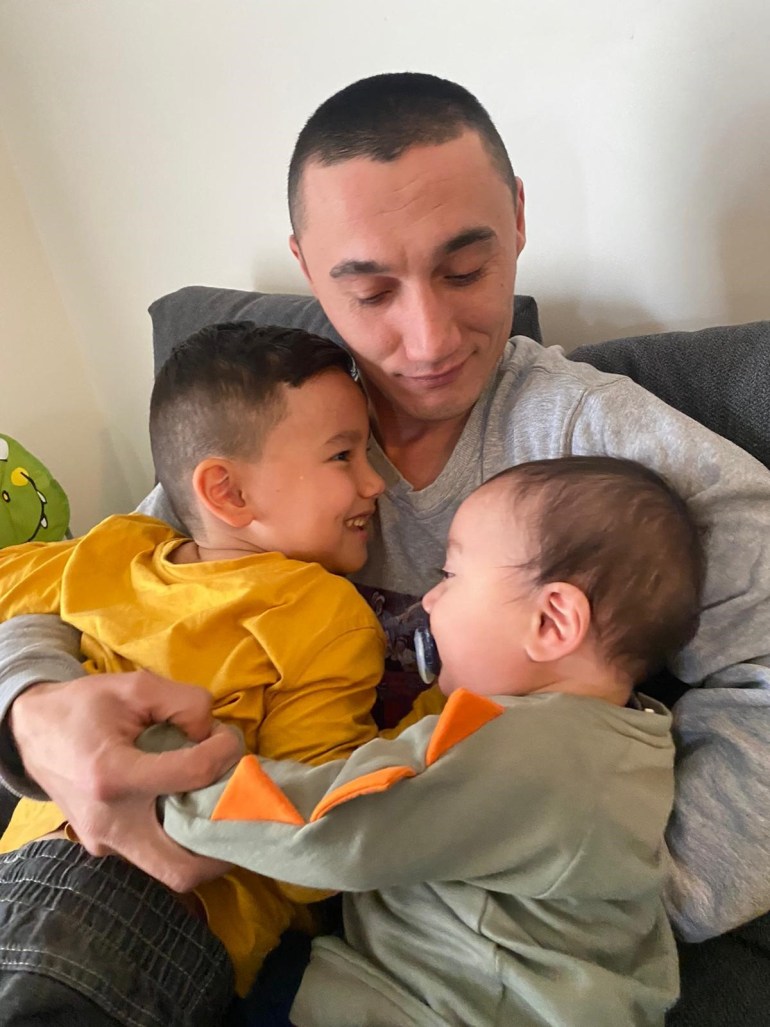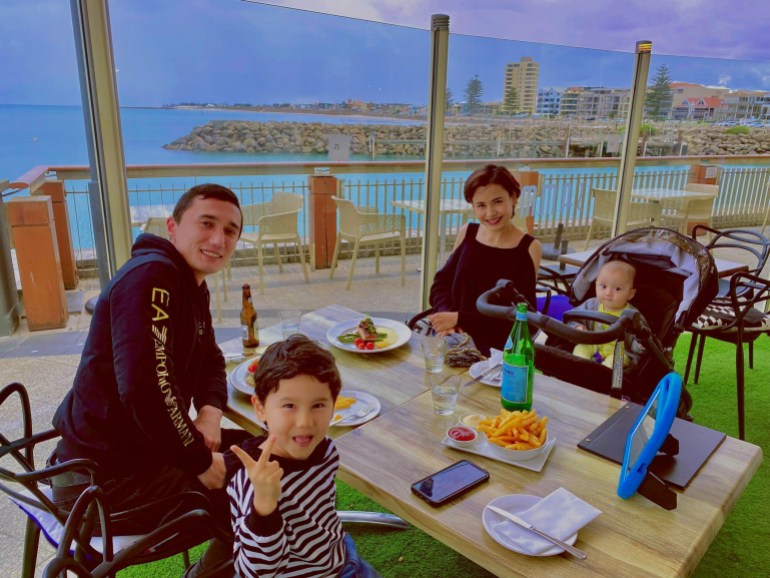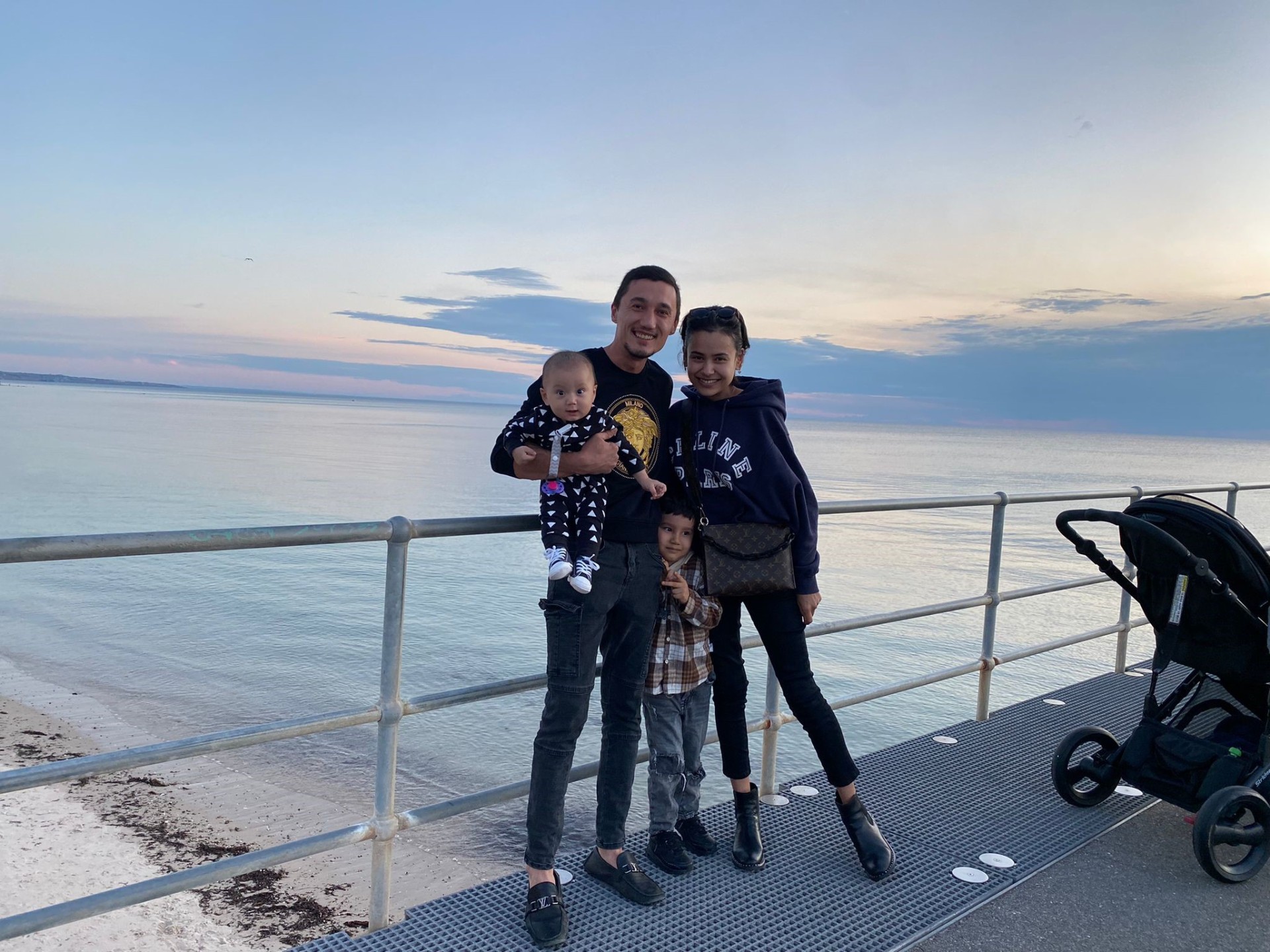Sadam Abdusalam, an Australian man of Uighur heritage, has spoken out for the first time on the painful experience of being forcibly separated from his wife and child for 1,338 days after she was prevented from leaving China.
Then-pregnant Nadila Wumaier found herself unable to leave the Chinese region of Xinjiang in 2017 when the Chinese authorities seized her passport, derailing her plans to join Abdusalam in Australia.
It was only in late 2020 that Abdusalam and his son Lutfi would meet in person for the first time — at Sydney airport.
Now five years old, Lutfi was born in Xinjiang, where the United Nations said in a long-awaited report this week that Beijing’s policies against the mostly Muslim Uighurs and other ethnic minorities may amount to crimes against humanity.
Abdusalam’s new book, entitled ‘Freeing My Family’, recalls his early teenage experiences in Australia, the painful ordeal of being separated from his wife and child, and the process of reconnecting and building a new life in the southern Australian city of Adelaide, where there is a large Uighur population.

Abdusalam’s parents sent him to Sydney in 2009 to study English, with his dad telling him not to return to Xinjiang.
In high school, he describes clashing with Han Chinese students who insisted he too was Chinese.
“They told me ‘you guys are extremist’,” he told Al Jazeera.
Once he got to know the classmates better, Abdusalam said it was clear they were just parroting the messages promoted by state media.
“Now, I don’t even blame the Chinese people for what they believe.”
Abdusalam met Wumaier, who was living in Xinjiang’s capital Urumqi, through friends online in 2015. The pair were married by the end of that year.
While accustomed to a long-distance relationship, the couple’s lives became entangled in what Amnesty International has described as a “dystopian hellscape”, characterised by mass surveillance, detention and allegations of torture.
Uighurs who travel overseas or have networks abroad — like Wumaier — have reported being pinpointed as part of what Chinese authorities say are efforts to stamp out violent extremism.
When Abdusalam spoke to Australian and international media about his case, Wumaier would be harassed by police in Xinjiang, he says.
Michael Bradley, Abdusalam’s lawyer and co-author of the book, initially felt the chances of getting Wumaier and Lutfi to Australia were “hopeless”.
“[But Abdusalam] was so tenacious, in his persistence, and it was immediately obvious that he wasn’t going to give up. So, I kind of felt, well, we’ll need to do this and see what we can achieve,” Bradley told Al Jazeera.
Learning to be a father
The first hurdle was that Lutfi was not an Australian citizen.
Once they had secured a passport for Lutfi, it was a matter of keeping Abdusalam’s case in the headlines and continuing political pressure on the Australian government to continue “back channel” negotiations with their Chinese counterparts, said Bradley.
“We were hopeful that there’d be some sort of political leverage and maybe, even maybe, some basic humanity at play,” he said.
In mid-2020, for reasons still unknown, Wumaier was told by Chinese police that she would have her passport returned.
Because of coronavirus-related travel restrictions and flight cancellations in late 2020, it took them some 50 hours to fly from Urumqi to Australia — travelling via Shanghai, Nanyang, Hong Kong and Port Moresby in Papua New Guinea — before they arrived in Brisbane, where they spent two weeks in hotel quarantine. Only after that could they travel on to Sydney.
The book describes “the last moment of my life alone”, as Abdusalam ran towards Wumaier and Lutfi at Sydney airport.
Elaine Pearson, Australian director at Human Rights Watch, said Abdusalam’s story was a “really important story of hope”.
“He really did achieve the impossible, he was able to get his family out.”
Abdusalam says his happy ending is bittersweet for others in the Uighur diaspora in Australia, many of whom remain unable to contact relatives in Xinjiang and are uncertain of their fate.
“Most of the people I know would love to return [to Xinjiang]. At the end of the day man, that’s where we were born. My friends, relations, relatives, everyone is there,” he said.
“But [returning] – that’s never going to happen.”
Abdusalam and Wumaier have their own challenges. Having only met Lutfi through video calls before 2020, Abdusalam told Al Jazeera that: “I call myself a dad. But to be honest, I [didn’t] really know how to be a dad.”
His wife also carries the trauma of her life in Xinjiang.
“Even when [Wumaier] sees the police officers in uniform or [hears] the siren, it still triggers her a little bit,” he said.
“I don’t think we’re 100 percent back to like, a normal couple. We are still struggling mentally … [but] we believe we both can move on.”
The couple now has another son, 10-month-old Latif, whose name in Uighur means “kind”.
Separated families
Since around the time the Chinese Communist Party began its clampdown against alleged “extremism” in Xinjiang in 2017, Abdusalam’s elderly parents have been in the United States.
While they have been granted asylum and green cards, life remains difficult.
“It’s not easy, they can’t speak English well … They miss every minute. They want to go back there. Go back to Xinjiang,” Abdusalam said.
“I told my parents you should feel lucky you’re not in a camp. … [but] they don’t really worry about being put into a concentration camp.”
Pearson of Human Rights Watch says the Australian government needs to “redouble efforts to advocate on behalf of Uighur Australians for their relatives and loved ones who remain trapped in Xinjiang”.
“The Chinese government needs to realise that it shouldn’t be effectively using Uighurs as hostages,” she said.
“These are crimes against humanity that are being committed, and they need to know that there will be consequences from the international community for committing those crimes.”

The Chinese Embassy in Australia did not respond to questions submitted by Al Jazeera.
Abdusalam holds out hope that Australia’s new Labor government will be more proactive in pushing for human rights protection in Asia, including for the Uighurs.
“I met with [now Australian Foreign Minister] Penny Wong when I went to parliament before the election,” he said.
“I have a pretty good feeling they will do more to help our people. I also thought to send one of my books to Penny Wong’s office. Hopefully she will read it.”
